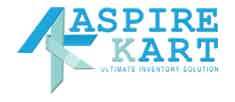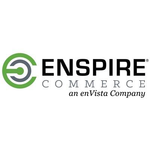Description

Aspirekart

Avercast
Comprehensive Overview: Aspirekart vs Avercast
As of my last update in October 2023, here's a comprehensive overview of Aspirekart and Avercast:
Aspirekart
a) Primary Functions and Target Markets:
Aspirekart primarily focuses on providing e-commerce solutions. Its platform is designed to help businesses establish and manage online stores. Key features include website creation, shopping cart functions, payment gateway integration, and customer relationship management. The target market for Aspirekart tends to be small to medium-sized enterprises (SMEs) that are looking for an affordable and scalable solution to launch and expand their online sales.
b) Market Share and User Base:
Aspirekart is recognized in regions with emerging markets where there is a strong push towards digitalization. While its global market share may not be as significant as some of the giants in the e-commerce platform space, it has a growing user base due to its affordability and user-friendly platform, tailored for less technical users.
c) Key Differentiating Factors:
- Affordability: Aspirekart distinguishes itself with competitive pricing aimed at small businesses.
- Ease of Use: It offers an intuitive interface, making it accessible to users with minimal technical expertise.
- Customization: While not as extensive as larger competitors, it allows sufficient customization to meet the basic needs of online retailers.
- Local Support: In certain regions, Aspirekart offers substantial local support and caters to specific regional e-commerce needs.
Avercast
a) Primary Functions and Target Markets:
Avercast is a software company specializing in demand planning, forecasting, and inventory optimization solutions. Its products are aimed at helping businesses improve their supply chain efficiency and accuracy in demand forecasting. The target market for Avercast includes mid-sized to large businesses across various industries such as manufacturing, retail, and distribution that require advanced analytics to manage their supply chains effectively.
b) Market Share and User Base:
Avercast is known for having a strong presence in the supply chain management sector. It may not have the same recognition as some of the largest global players but is respected for its niche focus and technological expertise in forecasting and planning. It has a loyal user base, particularly among companies that rely heavily on accurate demand forecasting to streamline operations.
c) Key Differentiating Factors:
- Forecasting Accuracy: Avercast boasts a strong reputation for providing highly accurate demand forecasting solutions.
- Industry Expertise: It has deep expertise in supply chain management, offering tailored solutions across various industries.
- Integration Capabilities: Avercast integrates seamlessly with various ERP systems, enhancing its appeal to companies with complex supply chain requirements.
- Advanced Analytics: It offers sophisticated analytical tools for inventory optimization, which helps users minimize costs and improve service levels.
Comparative Analysis
- Primary Function and Market: Aspirekart caters to e-commerce startups and SMEs looking to establish an online presence, while Avercast serves larger organizations needing detailed demand planning and supply chain optimization.
- Market Share: Aspirekart competes more within the e-commerce platform space, often against giants like Shopify and WooCommerce, while Avercast focuses more on supply chain solutions competing against companies like SAP SCM and Kinaxis.
- Differentiating Factors: Aspirekart's strength lies in its affordability and simplicity, whereas Avercast excels in its specialized and advanced forecasting tools tailored for larger and more complex operations.
Overall, both products cater to distinct markets with unique needs and possess specific strengths tailored to their target audiences' requirements.
Contact Info

Year founded :
Not Available
Not Available
Not Available
Not Available
Not Available

Year founded :
2020
Not Available
Not Available
Netherlands
http://www.linkedin.com/company/avercast
Feature Similarity Breakdown: Aspirekart, Avercast
As of my last training data, there may not be specific information available on "Aspirekart" and "Avercast" detail by detail, but I can provide a general framework on how to analyze and compare software tools in the supply chain and inventory management sector, assuming they operate in similar domains. Here's how you might approach comparing such products:
a) Core Features in Common
Typically, supply chain management and inventory forecasting platforms like Aspirekart and Avercast would share a range of core features, including:
-
Demand Forecasting: Both systems might use algorithms and historical data to predict future product demand.
-
Inventory Optimization: Tools to help maintain optimal stock levels and minimize excess inventory.
-
Order Management: Features for processing and tracking customer orders, including order fulfillment and logistics.
-
Supply Chain Analytics: Offering insights into various supply chain metrics to improve efficiency and decision-making.
-
Reporting Tools: Generating reports to give an overview of inventory levels, sales forecasts, and other key performance indicators.
-
Integration Capabilities: The ability to integrate with ERP systems, CRM, and other business software.
b) User Interface Comparison
Without specific screenshots or user feedback, comparing interfaces is speculative. However, here's what you might consider:
-
Ease of Use: Evaluate how intuitive and user-friendly each software is. Some platforms are designed for easy navigation with a clean, modern interface, while others may have a steeper learning curve.
-
Customization: Look at how customizable the dashboards and reports are. Some users might prefer a high degree of personalization.
-
Mobile Accessibility: Check if they offer mobile apps or responsive web designs for on-the-go access.
-
Visual Design: Compare the visual aesthetics, including the layout, design elements, and overall visual appeal.
c) Unique Features
Each product will likely have unique features or strengths, such as:
Aspirekart Unique Features (hypothetical example):
- E-commerce Integration: Direct integration with major e-commerce platforms for real-time inventory updates.
- AI-Powered Recommendations: Providing product recommendations based on purchasing trends and customer behavior.
Avercast Unique Features (hypothetical example):
- Advanced Statistical Modeling: Utilizes sophisticated algorithms for more accurate and reliable forecasting.
- Comprehensive Support and Training: Offering extensive training modules and 24/7 customer support.
Conclusion
To perform a more accurate and relevant comparison, I would recommend:
- Vendor Demos: Participate in demos or trials of both products to get hands-on experience.
- User Reviews: Research reviews from current or past users to gain insights into real-world usability and effectiveness.
- Consulting with Vendors: Direct consultation with sales or support teams can provide insights into their latest features and planned updates.
Please verify this information with up-to-date sources since the specifics may have evolved beyond what is captured in this overview.
Features

Integration and Compatibility
User Management
Dashboard and Analytics
Support and Resources

Demand Planning
Sales and Operations Planning (S&OP)
Reporting and Analytics
User-Friendly Interface
Inventory Management
Best Fit Use Cases: Aspirekart, Avercast
Aspirekart and Avercast are tools designed for specific purposes in the realm of e-commerce and supply chain management. Here's a breakdown of their best-fit use cases, as well as how they cater to different industry verticals and company sizes:
Aspirekart
a) Best Choice for Aspirekart:
Types of Businesses or Projects:
- E-commerce Startups: Aspirekart is ideal for budding online businesses that need a reliable platform to launch their products.
- Small to Medium Enterprises (SMEs): Those in the retail sector looking to enhance their online presence can leverage Aspirekart for its comprehensive e-commerce solutions.
- Niche Market Retailers: Businesses focusing on specific products or customer segments can benefit from Aspirekart’s customizable features that cater to unique market needs.
Industry Verticals:
- Fashion and Apparel: Aspirekart offers tools tailored for fashion retailers, including inventory management and flexible payment options.
- Consumer Electronics: It supports businesses dealing with tech products by offering detailed product listings and review systems.
- Health and Wellness: Companies in this fast-growing sector can use Aspirekart’s platform to manage customer data and orders efficiently.
Company Sizes:
- Primarily targeted at small to medium-sized businesses due to its cost-effective and scalable solutions. It provides the flexibility required by smaller entities to grow their online sales channels.
Avercast
b) Preferred Option for Avercast:
Scenarios:
- Complex Supply Chain Operations: Businesses needing precise supply chain planning and demand forecasting will find Avercast invaluable.
- Manufacturers and Distributors: Companies that manage large inventories and distribution networks can utilize Avercast’s solutions to optimize stock levels and streamline operations.
- Large Organizations: Enterprises with comprehensive supply chains and multiple product lines require the advanced forecasting capabilities that Avercast offers.
Industry Verticals:
- Automotive: With its complex supply chain needs, the automotive industry can leverage Avercast for accurate demand forecasting and inventory management.
- Food and Beverage: The perishability of products demands precise forecasting to minimize waste, a need that Avercast addresses adeptly.
- Consumer Packaged Goods (CPG): Businesses in this sector can benefit from Avercast’s sophisticated demand planning to ensure they meet customer expectations without overstocking.
Company Sizes:
- Avercast is especially beneficial for mid to large-sized companies that need more advanced features and support for complex logistics and supply chain challenges. Its tools are designed to handle high volumes and intricate planning needs.
Conclusion
Aspirekart and Avercast cater to different aspects of business management, with Aspirekart excelling in providing e-commerce solutions for small to medium-sized retailers across various consumer sectors, while Avercast provides robust demand forecasting and supply chain planning tools suited for larger organizations dealing with complex inventories and distribution logistics across several industries. Each product caters to specific business needs and scales effectively to match company size and industry requirements.
Pricing

Pricing Not Available

Pricing Not Available
Metrics History
Metrics History
Comparing undefined across companies
Conclusion & Final Verdict: Aspirekart vs Avercast
To provide a conclusion and final verdict for Aspirekart and Avercast, let's evaluate each product based on factors such as features, cost, user experience, and support. Both products aim to offer value in their specific domain, but there are distinct differences that might make one stand out over the other for potential users.
a) Best Overall Value: Considering all factors, the best overall value depends on the specific needs of the user. Aspirekart is often seen as offering superior value for businesses that need versatile e-commerce solutions with robust integration capabilities. On the other hand, Avercast tends to shine for companies requiring advanced demand planning and forecasting tools, making it ideal for industries heavily reliant on inventory management and supply chain optimization.
b) Pros and Cons:
Aspirekart:
-
Pros:
- Comprehensive e-commerce platform with a wide array of features including payment integrations, shopping cart functionality, and marketing tools.
- User-friendly interface which is easy for beginners to navigate.
- Flexibility in customization, allowing businesses to tailor the platform to their needs.
-
Cons:
- May lack advanced demand forecasting tools if that's a primary business need.
- Some users might find the initial setup complex without technical assistance.
Avercast:
-
Pros:
- Excellent demand forecasting and planning capabilities, making it highly suitable for supply chain optimization.
- Advanced analytics tools that help businesses make data-driven decisions.
- Reliable customer support focused on supply chain management scenarios.
-
Cons:
- Not an all-encompassing e-commerce solution; may require integration with other platforms for comprehensive e-commerce functionalities.
- The learning curve can be steep for users unfamiliar with advanced forecasting.
c) Specific Recommendations: For users trying to decide between Aspirekart and Avercast, the decision should be based on their primary business objectives. If the main goal is to build a robust online sales presence with an integrated e-commerce platform, Aspirekart would be the recommended choice. Its versatile tools cater well to merchants looking to enhance their digital storefronts.
Conversely, if a business's success is heavily dependent on precise demand forecasting, inventory management, and supply chain efficiencies, then Avercast should be considered. It's particularly suited for businesses in manufacturing or retail, where understanding future demand plays a critical role.
In summary, evaluate your business's core needs, existing systems, and future growth plans. Choose Aspirekart for e-commerce innovation and Avercast for demand and supply chain excellence.
Add to compare
Add similar companies




